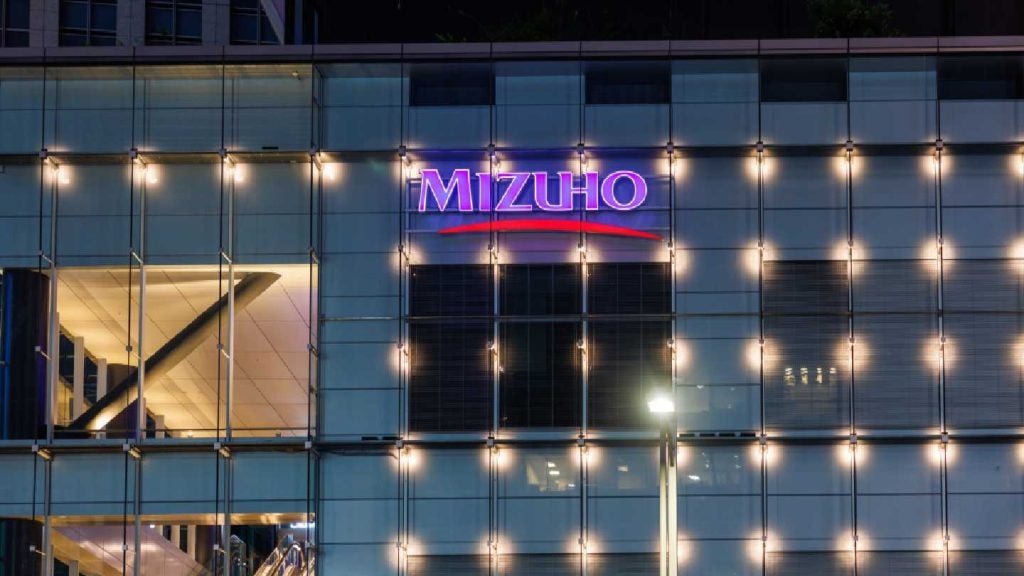A combination of changing demographics, new technology and regulations is challenging traditional private banking business models in South Africa. Customer care, openness and transparency are at the forefront of the country’s wealth management. Valentina Romeo talks to the biggest players to see how they are differentiating their offering
South Africa (SA) is the second largest and one of the most developed economies of Sub-Saharan Africa, despite growing at a significantly slower pace than the region as a whole.

Access deeper industry intelligence
Experience unmatched clarity with a single platform that combines unique data, AI, and human expertise.
The country has been hit by a number of economic crises, due to poor management and lack of investment in key industries. Following the 2008 financial crisis, the country’s public debt increased to 43% of GDP in 2013, from the 27.8% seen in 2008.
GDP figures for the first three months of 2014 showed a decrease of 0.6% – the worst performance in five years. Mining strikes in the gold, platinum and diamond industries were the main causes behind these negative figures, which created a large trade deficit further increasing the country’s debt.
"There has been a strong union activity in the mining sector especially. The recent labour crisis in the sector contributed to lots of economic uncertainty which is expected to impact the investment landscape," Eric Enslin, head of private banking, FNB Wealth, tells PBI.
Although South African economic growth has been more moderate than most of its neighbours, given its relative maturity and the negative impact of the financial crisis, the banking sector was not directly affected by the subprime crisis.
Specifically, South African private banks considerably outpaced their African counterparts in terms of service, regulation and innovation.
Enslin says:"Our financial and banking systems, our treasury and revenue services are well run and well regulated departments."
Forecast data shows that SA will experience a small amount of growth in 2014, after posting an increase of 1.9% in 2013. Figures from PBI’s sister company WealthInsight predict that SA will experience positive growth for 2014 as a whole.

US Tariffs are shifting - will you react or anticipate?
Don’t let policy changes catch you off guard. Stay proactive with real-time data and expert analysis.
By GlobalDataFurthermore, the South African wealth management market is showing signs of rapid growth. The market is attractive not only for local development, but also to foreign institutions, as it holds $200 billion in wealth. In fact, SA is considered the hub for African private banking with over $50 billion in assets under management (AuM).
"South Africa is the largest market for HNWI in Africa, with a third of the total number of HNWI (50,000 HNWIs). Even if the second largest economy in Africa, it is the most diversified, and in the top 3 or 5 countries in Africa for GDP/person, transparency and business rankings," says Vincent Combes, global market manager Africa & Commodities, SGPB Hambros.
Indeed, much of the growth in SA’s wealth management and private banking sector over the past decade has been driven by growth in personal wealth and the number of HNWIs and UHNWIs.
"Though its place as Africa’s biggest economy was lost to Nigeria this year, South Africa is not relenting on its position as Africa’s financial hub, and no industry is more indicative of this than wealth management," says Oliver Williams, analyst at WealthInsight.
Williams adds: "Sub-Saharan Africa’s HNWI population is growing faster today than any point in its history, providing a new wealth management frontier market right on South Africa’s doorstep."
According to WealthInsight’s latest wealth report, there were 47,464 HNWIs in SA in 2013. Though the number of HNWIs decreased by 2.7%, it is forecast to grow by 16%, reaching 57,147 by 2018. HNWI wealth is expected to grow by 31%, to reach $281 billion by 2018.
Interestingly, UHNWI wealth increased by 77.9% between 2008 and 2013, compared to a 29.2% increase recorded by core HNWIs. South African UHNWIs held 36.3% of the total South African HNWI wealth in 2013, WealthInsight also reports.
Combes says:"Wealth creation is getting broader-based as the SA economy is more and more diversified (consumer goods, media, tech, construction, banking sector, etc.) Highly concentrated in the Afrikaans community in the past, wealth creation is now spreading throughout NRI, BEE and BBBEE and European communities."
Focus on clients
Domestic private banks in South Africa have managed so far to stay competitive through being financially sound, as well as offering one of the best private banking services in the world.
However, the private banking industry in South Africa is facing many challenges to find new strategies to cater to demanding HNWI clients.
WealthInsight research shows new trends in wealth management strategies such as a widening of the target market to encompass the mass affluent category. Wealth managers are also looking to enhance their reputations to attract new investors, as many people lost faith in banks after the financial crisis.
"We pride ourselves on having a small pool of clients, who we can service extremely well. Whilst a lot of banks are struggling to break through with their HNW clients, wealthy individuals want to deal with us because they realise we don’t cater for everybody and therefore the levels of service and advice are impeccable." says Raymond Goss, head of wealth management at Investec.
Investec has the biggest share of the South African private banking market. Its offering combines two specialist areas – stockbroking, wealth and portfolio management for HNW individuals and an area that concentrates on banking activities on behalf of private clients.
Currently the bank has around about 80,000 clients, and roughly about a 20 to 23% market share. The bank holds Africa’s largest portfolio of AuM at $24 billion.
"If you look at banking in South Africa 7 or 8 years ago, it was very much about mass market, where there were huge opportunities and untapped potential. Investec on the other hand has always focused on the affluent market. Today the mass market is no longer attractive as a result of bad debts, so competitors are trying to get into the space we’ve traditionally occupied," adds Ryan Tholet, head of private banking South Africa, Investec.
The South African private banking model differs from the European model because of the focus on offering wealth and banking solutions. In Europe the primary focus is on offering wealth solutions such as how to grow, protect and preserve clients’ wealth.
Local banks, like Investec, rely on their ability to provide high quality service and meet their clients’ needs as a key differentiator, as most of the products and services in the private banking space are similar.
Tholet adds: "Now, you have to be as fully encompassing as possible because these clients are internationally mobile. A big part of our strategy that helps differentiate us is the fact that we are an international bank for South Africans. While others have spent years building up a mass market retail banking process driven system, we’ve been spending years building an international business in the UK and various other parts of the globe and it’s now our opportunity to integrate these."
Banks in SA also have a strategy of targeting potentially high earning individuals before they actually qualify to be a private banking client. For example, Investec has a ‘Young Professionals’ programme which offers similar private banking services such as a dedicated private banker, specialised travel, offshore services and financial planning advice.
Tholet says: "We as a bank attempt to attract the right type of clients very early on in their life cycle.
"We therefore have an opportunity to bank these professionals literally from when their career begins, right through to when they retire."
Offshore investments on the rise
As for key investments themes for wealthy South Africans, SGPB Hambros explains that even though a larger share of the new wealth stays onshore, there is still a strong need for securing assets off-shore.
"The private banking and wealth management markets are becoming more sophisticated, diversified and international. Share of onshore investment is growing, especially with the new wealth," says Combes.
However, ‘we also see an increased interest for international wealth planning solutions and for new international private banking centres (Mauritius, Dubai) along with the traditional ones (London-CI, Geneva)’.
In 2013, South African HNWIs held 17.4% (US$35 billion) of their wealth outside their home country. Foreign asset holdings are expected to increase to $45 billion by 2018, accounting for 16.1% of total assets.
According to WealthInsight, equities had the highest foreign allocations in 2013 (49.6%), while real estate had the lowest (8.0%).
Competition hits up
South Africa has a mixture of both foreign and domestic private banks, and it is seeing an increase in the M&A market activity. Nevertheless, strict regulations are in place to combat monopolies in the market and increase competition. An example of this is 100% buy-outs by rival banks having to go through the reserve bank of South Africa. The measures are also in place in Nigeria, showing the high level of concern these two countries have of the market saturating too early.
South Africa, unlike many countries in Africa, looks to be ahead of the competition. This has been expressed in a passage from Deloitte on Africa Collection: Special Addition, stating that the only country in Africa likely to be able to implement Basel III in time will be South Africa, with Mozambique only looking at implementing Basel II by 2014.
Foreign clients may also be attracted to the strategy South African banks have on regulation, as well as looking at the continent’s overall macroeconomic environment.
"Our regulatory, financial and banking systems are of the best in the world. So from that point of view, South Africa is punching far above its weight if compared to some developed and first world countries. The aforementioned gives comfort, which contribute to the retention and attraction of money flow," says FNB’s Enslin.
As a result, additional interest is also expected from foreign private banks looking to access the thriving South African market. Companies like Barclays and HSBC are increasing their investments across the continent, but they are mainly eyeing up South Africa and Nigeria.
Even though these high levels of foreign investments are welcome, they can pose a threat to the traditional private banking etiquette in South Africa. To defend their brand, local players will need to put technology and digital engagement at the core of their business model as well as maintain an international focus. With private banks revolutionising their offering, Enslin concludes: "If you’re only going to see yourself as a traditional bank, you might not exist in five years."







